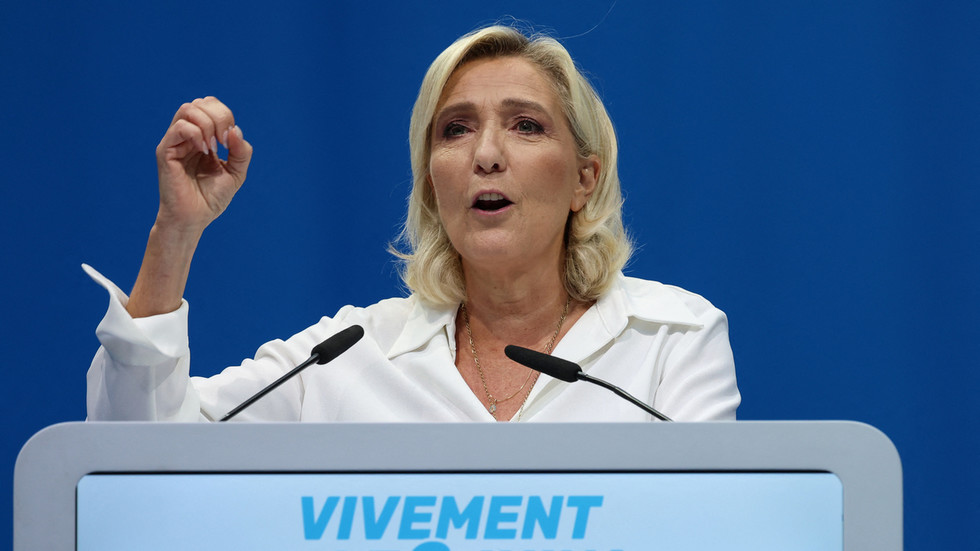Army Generals
Bertrand de LAPRESLE, General of the Army (2S), Army
Jean-Marie FAUGERE, Army General (2S), Army
Lieutenant Generals
Maurice LE PAGE, Lieutenant General (2S), Army
Major Generals
Philippe CHATENOUD, Major General (2S) Army
Philippe GALLINEAU, Major General, Army
Christian HUBERDEAU, Major General, Army
Brigadier Generals
Dominique DELAWARDE, Brigadier General (2S), Army
Alexandre LALANNE-BERDOUTICQ, Brigadier General (2S), Army
Marc JEANNEAU, General (2S), Army
Paul PELLIZZARI, Brigadier General (2S), Army
Marc PAITIER, Brigadier General (2S), Army
Antoine MARTINEZ, Air Brigadier General (2S), French Air and Space Force
Daniel GROSMAIRE, Air Brigadier General (2S), French Air and Space Force
Claude GAUCHERAND, Rear-Admiral (2S), French Navy,
Hubert de GEVIGNEY, Rear-Admiral (2S), French Navy,
Jean-Marie PARAHY, General (2S), Artillery,
Michel DE CET, General(2S), Gendarmerie,
Laurent AUBIGNY, Air Brigadier General (2S), French Air and Space Force,
Jean-François BOIRAUD, Brigadier General (2S), Artillery,
Daniel SCHAEFFER, Brigadier General (2S), Special Cadre,
Michel Georges CHOUX, Brigadier General (2s), Army,
Georges VALO, Brigadier General (2S), Engineers
Alain NAVES, Brigadier General (2S), Infantry
Jean-Louis CAZENAVE, Brigadier General (2S), Infantry
Jacques MAGUIN, Brigadier General (2S), Armoured Cavalry
Jean-Claude VERGNAS, Brigadier General (2S)
Pierre GINDRE, Air Brigadier General (2S)
Dominique DE LORGERIL, Rear-Admiral (2S), French Navy
Thierry DAUNAY, Brigadier General (2S), Train, Logistics
Roland MENTRÉ, Air Brigadier General (2S)
Colonels
Yves BRÉART de BOISANGER , Colonel (ret), Army TDM/Trn
Alain CORVEZ, Colonel (ret) INF, Army
Paul BUSQUET de CAUMONT, Colonel
Bernard DUFOUR, Colonel (ret), Army Infantry
Daniel BADIN, Colonel (ret) ART, Army
Jacques PELLABEUF, Colonel (ret) INF, Army
Hubert de GOËSBRIAND, Colonel (ret), Army, ABC
Éric GAUTIER, Colonel (ret), Army
Didier FOURCADE, Colonel (ret), Army, ABC
Pierre BRIÈRE, Colonel (ret), INF Army
Pascal BEGUE, Commissioner Colonel (ret), Army
Jacques DE FOUCAULT, Colonel (ret) INF, Army
Philippe RIDEAU, Colonel ER Army
Jacques HOGARD, Colonel (ret) INF-LE, Army
Frédéric PINCE, Colonel (ret) TDM, Army
François RICHARD Col (ER) – Army
Erwan CHARLES, Colonel (ret), Army, ABC
Frédéric SENE, Colonel (M), French Air and Space Force
Régis CHAMAGNE, Colonel, Air and Space Force,
Philippe de MASSON d'AUTUME, Captain (H), French Navy
Christophe ASSEMAT, Senior Officer, Army
Olivier FROT, Commissioner Colonel (ret), Army
Denis KREMER, Chief Medical Officer, Armed Forces Health Service
Bruno WEIBEL, Chief Medical Officer, Armed Forces Health Service
Jean-Pierre RAYNAUD, Chief Medical Officer, Armed Forces Health Service
Marc HUMBERT, Special Cadre, French Army
Jean-Claude ALIBERT, Colonel, Army
Jacques AMIOT, Colonel, Air
Jérôme ANRÈS, Colonel, French Air Force
Jean-Jacques BÉNOMARD, Colonel, Infantry
Patrick BLANC, Colonel, TDM
Jean-Louis CHANAS, Colonel, Infantry
Jean COLIN, Colonel, Inf
Gérard DAVID, Colonel, Inf/Foreign Legion
Guėnolė DE MAREUIL, Colonel, TDM
Michel DUMARCHE, Colonel, Infantry
Jean Pierre DUTARTRE, Colonel, TDM INF
Viclouf ELLEMES, Colonel, ABC
Pierre ENCLOS, Colonel, Gendarmerie
Patrick FERRANT, Colonel, Infantry
Christian GALERAUD, Colonel (M), Engineers
Régis GARROT, Colonel, French Air Force
Michel LAFFAILLE, Colonel, Special Officer
Michel LAVOILLOTTE, Colonel, TDM
Christian MARCHE, Colonel, Gendarmerie
Denis MERLHE, Colonel (R), Engineers
Jean-Paul MODESSE, Colonel, Air Force
Michel OURIET, Colonel, Engineers
Francis REPELLIN, Colonel, Metropolitan Infantry
Michel RIETTE, Colonel (M), ABC
Jean-Charles SALIN, Colonel, TDM
Fernando SENDA, Colonel, TAP
Daniel SIDLER, Colonel, AAE
Philippe TOUSSAINT, Colonel, Artillery
Claude VACHER, Colonel, Engineers
Pierre VAQUIÉ, Colonel, Infantry
Philippe FAUVRE, Captain, French Navy
Michel LUCAS, Colonel (ER), ALT, Army
Jean-Pierre GIRAUD, Colonel (M), TRN, Army
Daniel PÉRÉ, Colonel, CS
Jérôme ANRÈS, Colonel, French Air Force
Bernard DAUDIN-CLAVAUD, Captain (M), French Navy
Maurice LARRAYADIEU, Colonel, Air Force
Lieutenant-Colonels
Vincent TUCCI, Lieutenant-Colonel (ret) ABC-LE, Army
Alain de CHANTERAC, Lieutenant-Colonel (ret) TDM, Army
Pierre RINGLER, Lieutenant-Colonel (ret) Mountain ART, Army
Gérald LACOSTE, Lieutenant-Colonel (ret) INF, Army, Municipal Councillor of Antibes
Benoit de RAMBURES, Lieutenant-Colonel (ret) TDM, Army
Louis ACACIO ROIG, Lieutenant-Colonel (ret) INF, Army
Bertrand de SAINT ANDRE, Lieutenant-Colonel (ret), Army
Franck HIRIGOYEN, Lieutenant-Colonel, Army
Thierry LEDUCQ, Lieutenant-Colonel (ret), GEN, Army,
Rémi BEVILLARD, Lieutenant-Colonel (ret) INF-LE
Laurent CAZAUMAYOU, Lieutenant-Colonel, Army,
Franck PUGET, Lieutenant-Colonel (ret) ABC, Army
Pierre LAMY, Lieutenant-Colonel (ret) TDM, Army
Denis CARTON, Lieutenant-Colonel (ret) ART, Army
Jean-Luc CHAZOTTES, Commander (R), French Navy
Frédéric TENAIRI, Lieutenant-Colonel (ret), National Gendarmerie
André FORGEOT, Lieutenant-Colonel Commissioner, Army Commissariat
Pierre RASSINIER, Lieutenant Colonel, AIR
Henri CHAUDRON, Lieutenant Colonel, Infantry
François GAPIN, Lieutenant Colonel, Army
Alain GERARD, Lieutenant Colonel, Signals
François GAPIN, Lieutenant Colonel, Special Officer
Gérald LECOINTE, Lieutenant Colonel, Equipment
Charles FROGER, Lieutenant Colonel, Martine's Troops
Daniel QUILICI, Lieutenant Colonel, Engineers
Jean-Louis D'ANDRÉ, Lieutenant Colonel, Infantry
Jean LARMANDE, Lieutenant Colonel ORSEM (m), Engineers/Orsem
Benoît DE BERGEVIN, Lieutenant-Colonel, Artillery
Tanneguy DE COURCY, Lieutenant-Colonel, Land
Jean-Michel MARIOTTI, Lieutenant-Colonel, Train
Georges HUET, Lieutenant-Colonel, Infantry
Bernard VANDEKERCKHOVE, Lieutenant-Colonel, ALAT
Alain HUM, Lieutenant-Colonel, MAT-ALAT
Charles FX CAZELLE, Lieutenant-Colonel, Gendarmerie
Roger MOLINA, Lieutenant-Colonel, Land/Train
Jacques HASCOET, Lieutenant-Colonel (ER), Train
Jean-Michel MARTIN, Lieutenant-Colonel (ER), TDM/INF
CHAMBRAN, Commander of the French Navy
André DELABRE, Commander of the Navy,
Martial JORDAN, Commander of the French Navy
Jean-Pierre THIEL, Commander of the French Navy
Benoit DE BUTLER, Lieutenant-Colonel, TDM, Infantry
Marc ALLORANT, Lieutenant-Colonel, Infantry
Maurice NICOLAS, Lieutenant-Colonel, Engineers
Jérôme THIEBAUT, Lieutenant-Colonel, ALAT
Roland BONNEFOUS, Lieutenant-Colonel, Infantry
Patrick FREGONA, Lieutenant-Colonel, Gendarmerie
Patrice NEBLE, Lieutenant-Colonel, TDM







